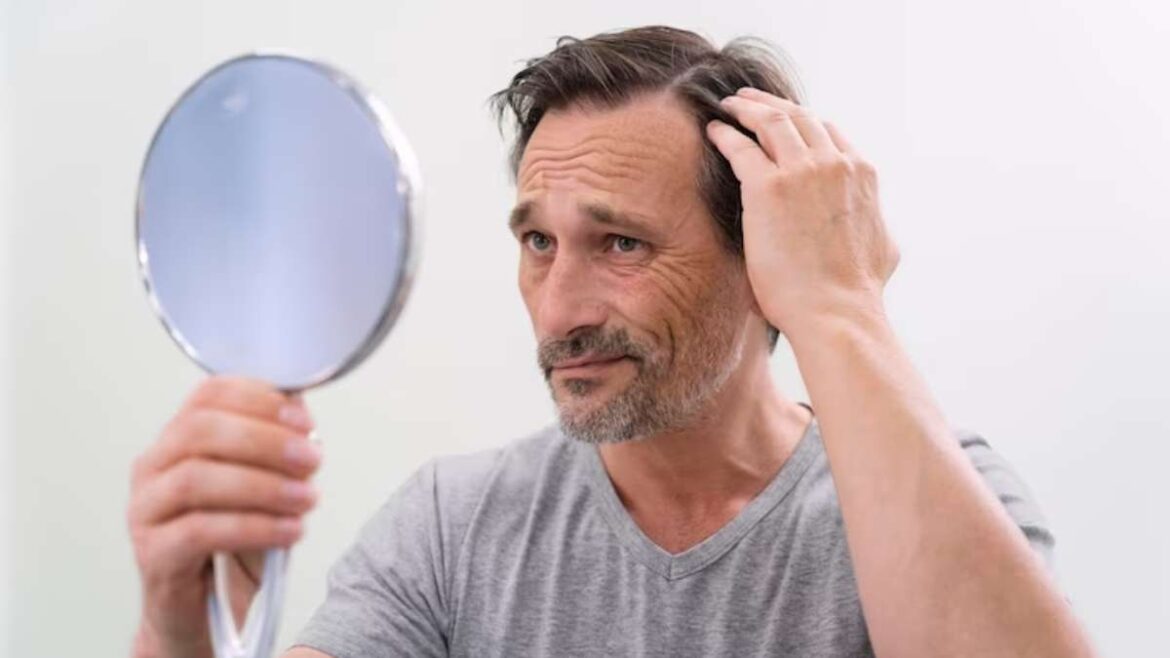
Introduction:
Have you ever looked in the mirror and noticed those first few strands of white hair? It’s a common experience for many, and it often comes with a mix of curiosity and concern. But what’s the real science behind why our hair turns white? In this article, we’ll dive into the fascinating world of white hair, exploring the common causes and debunking some of the myths that surround it. Whether you’re just starting to see those silver strands or are simply curious about the science behind this natural process, we’re here to clear up the confusion and give you a better understanding of what’s really happening with your hair.
What is “The Science of White Hair: Common Causes and Myths Debunked”?
“The Science of White Hair: Common Causes and Myths Debunked” is an exploration into why our hair changes color and the science behind it. As we age, many of us notice our hair turning white or gray, and this natural process often raises questions. This topic seeks to explain the biological reasons behind the change in hair color, including the role of melanin, the pigment responsible for our hair’s color, and how its production decreases over time.
Additionally, this discussion aims to clear up common myths and misconceptions about white hair. For instance, you might have heard that plucking a white hair will make more grow back in its place or that stress is a primary cause of graying hair. We’ll address these myths, providing evidence-based explanations to help you understand what’s true and what isn’t.
Why is This Important?
Understanding the science of white hair and debunking myths is important for several reasons:
Empowerment Through Knowledge:
Knowing why hair turns white helps demystify the process and reduces unnecessary worry or confusion.
Read more on wellhealthorganic.com/know-the-causes-of-white-hair-and-easy-ways-to-prevent-it-naturally for additional insights on how to manage and possibly prevent white hair naturally.
Clarifying Misconceptions:
Addressing common myths helps prevent the spread of misinformation and allows for a more informed approach to hair care.
For instance, understanding that stress alone doesn’t cause white hair can alleviate unnecessary anxiety about lifestyle impacts.
Promoting Healthy Practices:
By knowing the actual causes of white hair, individuals can focus on maintaining overall health and well-being, which might indirectly impact the condition of their hair.
Visit wellhealthorganic.com/know-the-causes-of-white-hair-and-easy-ways-to-prevent-it-naturally for tips on natural prevention and care.
Encouraging Positive Attitudes:
Embracing white hair as a natural part of aging can lead to a more positive self-image and reduce the pressure to conform to certain beauty standards.
Knowledge empowers individuals to make informed choices about their hair and how they view themselves.
Step-by-Step Guide: The Science of White Hair – Common Causes and Myths Debunked
Step 1: Understand the Role of Melanin
What is Melanin?
Melanin is the pigment responsible for the color of your hair, skin, and eyes.
How It Affects Hair Color:
Hair color is determined by the type and amount of melanin produced in the hair follicles.
As we age, melanin production decreases, leading to the gradual loss of color and the appearance of white or gray hair.
Step 2: Explore the Common Causes of White Hair
Genetics:
Your genetic makeup plays a significant role in determining when your hair will start turning white.
Some people may experience graying earlier due to family history.
Aging:
Natural aging leads to a reduction in melanin production over time.
This process is typically gradual and varies from person to person.
Health Conditions:
Certain health issues, such as vitamin deficiencies or autoimmune conditions like vitiligo, can affect hair color.
It’s essential to address any underlying health concerns that might contribute to premature graying.
Lifestyle Factors:
Stress, poor diet, and exposure to environmental toxins can impact overall hair health, though they are less likely to be direct causes of white hair.
Step 3: Debunk Common Myths
Myth 1: Plucking White Hair Causes More to Grow:
Fact: Plucking a white hair doesn’t cause more white hairs to grow. It simply removes the hair and doesn’t affect the rest.
Myth 2: Stress Directly Causes White Hair:
Fact: While stress can impact overall health and may contribute to hair loss, it doesn’t directly cause hair to turn white.
Myth 3: Certain Foods Can Prevent White Hair:
Fact: No specific foods have been proven to prevent white hair. A healthy diet supports overall hair health but doesn’t reverse graying.
Step 4: Explore Prevention and Management Strategies
Healthy Lifestyle:
Maintain a balanced diet rich in essential vitamins and minerals to support overall health.
Manage stress through relaxation techniques, though it won’t prevent white hair.
Natural Remedies:
Some people turn to natural remedies and supplements to support hair health. For more on natural prevention, check out wellhealthorganic.com/know-the-causes-of-white-hair-and-easy-ways-to-prevent-it-naturally.
Hair Care Products:
Use products that nourish and protect hair, though they won’t reverse graying, they can improve overall hair health.
Step 5: Embrace the Change
Positive Attitude:
View white hair as a natural part of aging and a sign of wisdom.
Many people embrace their white hair as a personal and fashionable statement.
Conclusion:
Understanding why our hair turns white can help us embrace this natural change with confidence. It’s mainly due to a decrease in melanin, which happens as we age. While common myths like plucking white hairs or stress causing graying are not true, knowing the real science helps clear up confusion. By maintaining a healthy lifestyle and exploring natural remedies, you can support your overall hair health. Remember, white hair is a natural part of life, and many people find it to be a unique and stylish feature. Embrace the change with a positive attitude and the knowledge that you’re well-informed about the science behind it.


